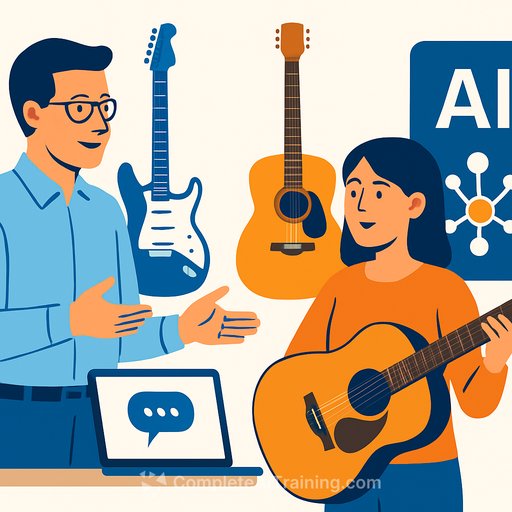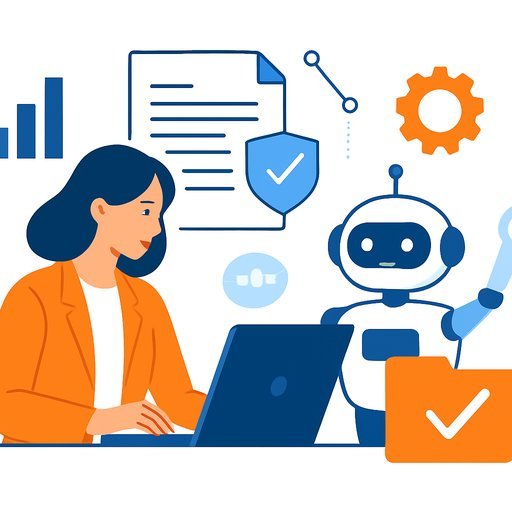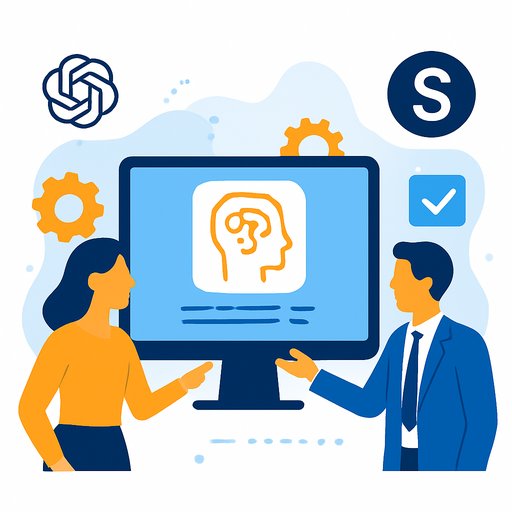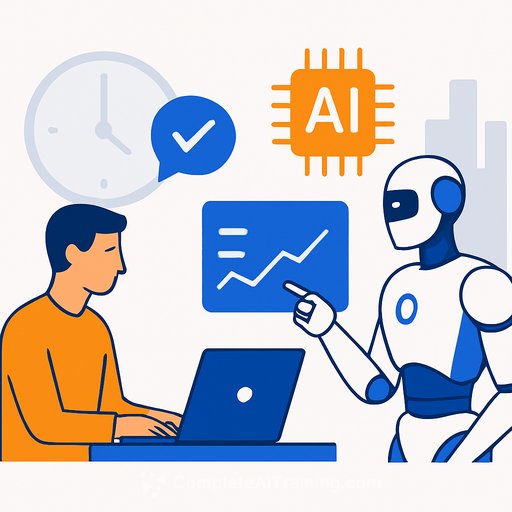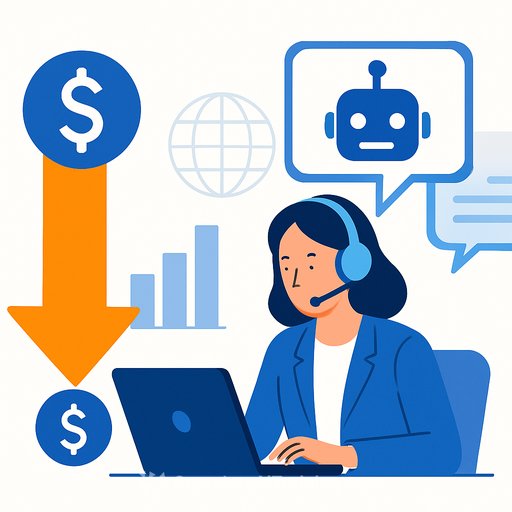Guitar Center brings AI to the sales floor: what support teams can learn
Guitar Center is training store associates with a new voice-based AI app called Pitch Practice. It runs role-play conversations, scores each session 1-10, and gives targeted feedback. The retailer sits at No. 115 in the Top 2000 and is projected to reach $869.17 million in ecommerce sales in 2025 - and it's treating AI as a core part of that growth.
If you work in customer support, this is worth paying attention to. The approach blends coaching, knowledge reinforcement, and live practice - without pulling managers off the floor.
How Pitch Practice works
Associates talk to an AI that emulates a customer shopping for gear. After each session, they get a score, highlights, and specific areas to improve. Progress is tracked over time so coaching becomes continuous, not a one-off training packet.
Difficulty adjusts to the associate's level. It's voice-first by design, mirroring real sales conversations instead of multiple-choice clicks. Under the hood, a large language model processes speech and responds quickly enough to keep a human-like flow.
The rollout is underway nationwide. Associates are encouraged to run two short sessions per day - once before going on the floor and again midday. Early signs point to strong engagement, with teams comparing scores and pushing each other to improve.
Why this matters for support teams
Voice practice builds confidence under pressure. It also catches weak spots faster than a quiz - objection handling, discovery questions, and product explanations become visible and coachable.
Scoreboards and short daily reps drive habit formation. You get coaching at the moment of need, not weeks later.
Rig Advisor: AI for shoppers, online and in store
Guitar Center's second initiative, Rig Advisor, helps customers discover and compare gear in real time. In stores, shoppers scan a QR code and type an artist, song, tone, or gear question. The assistant recommends options based on what's actually in stock at that location.
Rig Advisor also lives on GuitarCenter.com for text-based questions. In testing, it suggested beginner-friendly models, explained guitar types, and surfaced available inventory.
What's next
More AI features are planned through 2026 across both tools. Expect deeper customer service scenarios, stronger product knowledge training, and better coaching on lessons, rentals, and repairs.
What support leaders can borrow: a quick playbook
- Pick high-impact scenarios: discovery, troubleshooting, escalations, and refund policy calls.
- Make it voice-first: simulate real conversations, not just text prompts.
- Keep reps in short daily loops: 5-7 minute sessions before shift and midday.
- Score what matters: empathy, clarity, product accuracy, resolution path, and compliance.
- Start with store/site inventory awareness: recommendations must reflect what's available now.
- Add light gamification: leaderboards by team, personal bests, streaks.
- Close the loop: push coaching tips to managers with clips/transcripts for quick review.
Metrics to watch
- Training: daily active practice rate, average scenario score, time to proficiency by scenario.
- Quality: first-contact resolution, handle time variance, repeat contact rate, compliance flags.
- Sales/Support outcomes: conversion on assisted sessions, attachment rates, refund/return reduction.
- Customer signals: CSAT after AI-assisted workflows, NPS trends, verbatim themes.
Guardrails that make this work
- Privacy: keep training conversations separate from live customer data unless explicitly allowed.
- Accuracy: ground the AI in your product catalog, policies, and live inventory to prevent bad advice.
- Safety: filter for disallowed outputs and add clear escalation paths to humans.
- Transparency: label AI interactions and capture consent where required.
- Evaluation: run regular red-team tests and bias checks against a standard like the NIST AI Risk Management Framework.
Who else is moving this way
Lowe's rolled out Mylow Companion to associate devices across 1,700+ stores. It surfaces product info, project guidance, and inventory, and is built on the same platform as its customer-facing Mylow advisor, developed with OpenAI.
Best Buy now uses AI with associates and Geek Squad technicians for product recommendations, diagnostics, and predictive service. It's also testing conversational search and smarter filtering across its site, app, and in-store screens ahead of the 2025 holiday season.
If you're ready to skill up your team
Want a curated path to AI skills by job function, including customer support? Explore focused learning tracks here: Complete AI Training - Courses by Job.
Bottom line
Short, voice-based practice plus shopper-facing guidance is the combo to watch. Train daily, score what matters, ground answers in live data, and keep humans in the loop. That's how support teams turn AI into better conversations and cleaner outcomes.
Your membership also unlocks:

